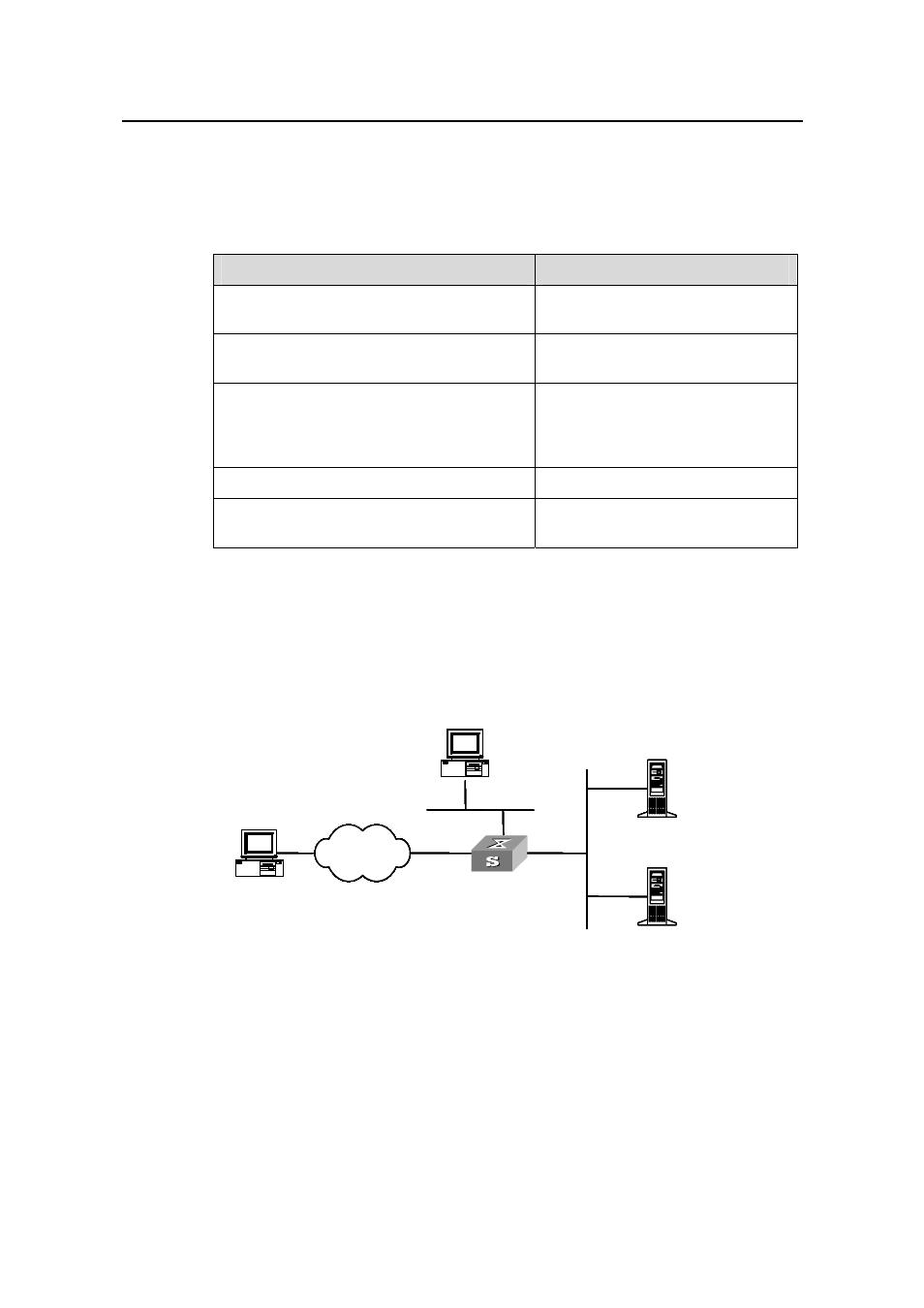Ii. basic message exchange procedure in hwtacacs – H3C Technologies H3C S3100 Series Switches User Manual
Page 307

Operation Manual – AAA – RADIUS – HWTACACS
H3C S3100-52P Ethernet Switch
Chapter 1 AAA & RADIUS & HWTACACS
Configuration
1-8
Compared with RADIUS, HWTACACS provides more reliable transmission and
encryption, and therefore is more suitable for security control. Table 1-3 lists the
primary differences between HWTACACS and RADIUS.
Table 1-3
Differences between HWTACACS and RADIUS
HWTACACS
RADIUS
Adopts TCP, providing more reliable network
transmission.
Adopts UDP.
Encrypts the entire message except the
HWTACACS header.
Encrypts only the password field in
authentication message.
Separates authentication from authorization.
For example, you can use one TACACS
server for authentication and another
TACACS server for authorization.
Combines authentication and
authorization.
Is more suitable for security control.
Is more suitable for accounting.
Supports configuration command
authorization.
Does not support.
In a typical HWTACACS application (as shown in Figure 1-5), a dial-up or terminal user
needs to log into the switch to perform some operations. As a HWTACACS client, the
switch sends the username and password to the TACACS server for authentication.
After passing authentication and being authorized, the user successfully logs into the
switch to perform operations.
TACACS server
129.7.66.66
ISDN /PSTN
Dial -up user
HWTACACS client
Terminal user
TACACS server
129.7.66.67
TACACS server
ISDN/PSTN
Dial -up user
HWTACACS client
Terminal user
TACACS server
129. .66.67
TACACS server
ISDN /PSTN
Dial -up user
HWTACACS client
Terminal user
TACACS server
129.7.66.67
TACACS server
ISDN/PSTN
Dial -up user
HWTACACS client
Terminal user
TACACS server
TACACS server
129.7.66.66
ISDN /PSTN
Dial -up user
HWTACACS client
Terminal user
TACACS server
129.7.66.67
TACACS server
ISDN/PSTN
Dial -up user
HWTACACS client
Terminal user
TACACS server
129. .66.67
TACACS server
ISDN /PSTN
Dial -up user
HWTACACS client
Terminal user
TACACS server
TACACS server
129.7.66.67
TACACS server
ISDN/PSTN
Dial -up user
HWTACACS client
Terminal user
Figure 1-5
Network diagram for a typical HWTACACS application
II. Basic message exchange procedure in HWTACACS
The following text takes telnet user as an example to describe how HWTACACS
implements authentication, authorization, and accounting for a user. Figure 1-6
illustrates the basic message exchange procedure:
